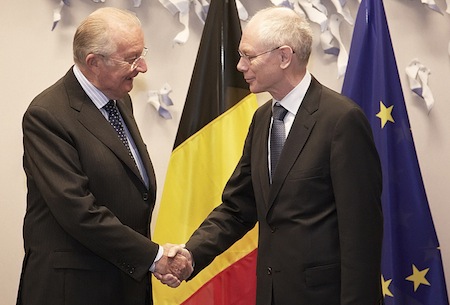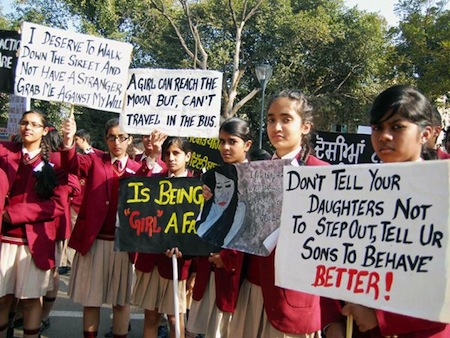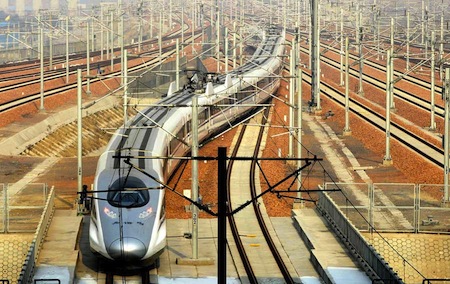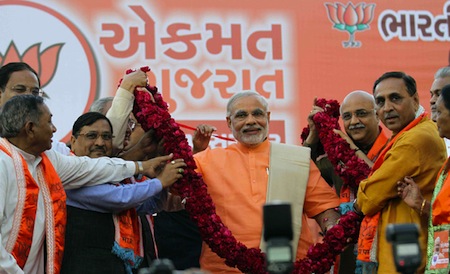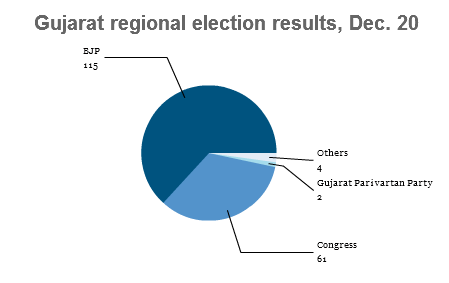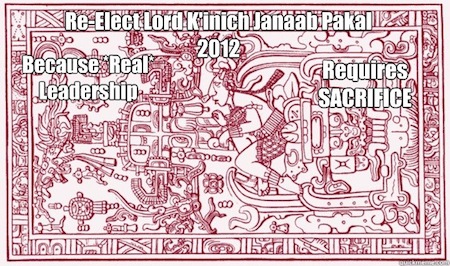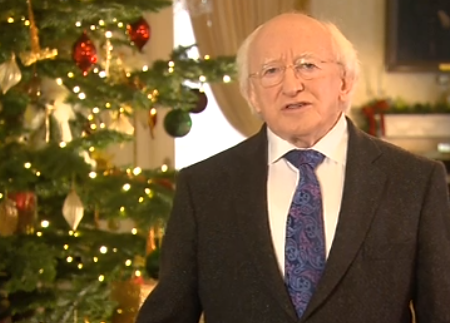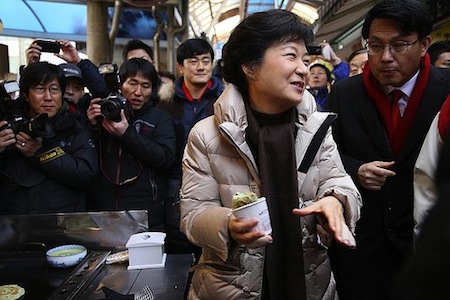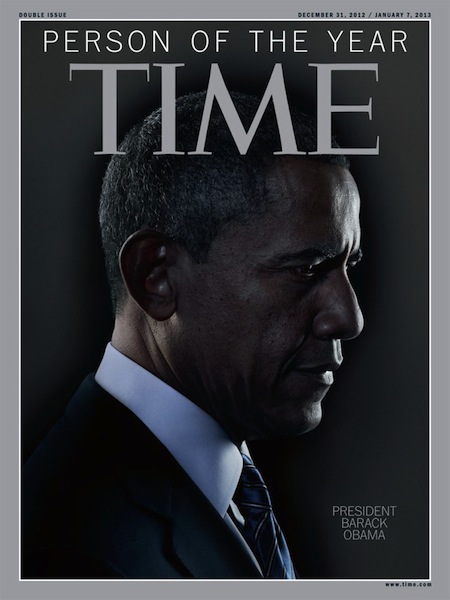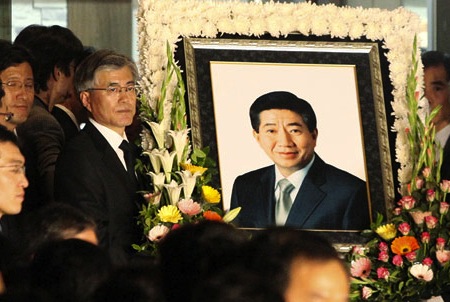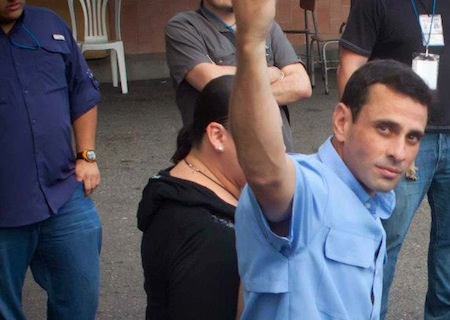
With so much going on in world politics, namely the Japanese and South Korean elections earlier last week and the holidays, it’s been easy to sidetrack the gubernatorial elections throughout Venezuela last Sunday — but that doesn’t diminish their importance.
As you probably know by now, it was a good day for Hugo Chávez and the ruling Partido Socialista Unido de Venezuela (PSUV, or United Socialist Party of Venezuela). The chavista left won 20 out of 23 races, leaving them with more regional power after Sunday than before and the various opposition groups with five less governors. And Chávez is still alive, as of today, following surgery in Cuba, although, perhaps troublingly, his vice president Nicolás Maduro has now assumed key economic powers in the country.
The opposition held onto the second most-populous state, Miranda, where the current governor, Henrique Capriles, recently lost the October presidential race to Chávez by 9% as the candidate of the opposition Mesa de la Unidad Democrática (MUD) — though it doesn’t quite seem so, it was actually the best performance by an opposition challenger against Chávez in his 13 years in power, in stark contrast to the previous near-comical attempts to defeat Chávez.
Capriles, in the Dec. 16 race, faced Chávez’s outgoing vice president Elías Jaua, and despite Jaua’s somewhat lackluster campaigning skills, Jaua had the full force of the PSUV and the Chávez government behind him.
Capriles’s win — by a relatively narrow 51.83% to Jaua’s 47.82% margin — makes him the highest-ranking opposition governor in Venezuela, and the fact that he’s held on to the governor’s office in Miranda, despite a hard-charing effort from the PSUV, means that if Chávez dies or retires in office anytime soon (a question that’s on everyone’s mind following yet another surgery for the cancer-stricken Chávez), Capriles will be the natural candidate to contest any impromptu presidential race — which would take place within 30 days. No one else in the opposition has the same level of name recognition or could so quickly mobilize a national campaign apparatus.
Notably, Capriles’s rival for the opposition presidential nomination, the governor of Venezuela’s most populous state, Zulia, Pablo Pérez lost his reelection bid, ending a 12-year run for Pérez’s Zulia-based Un Nuevo Tiempo (UNT, a New Era). Although Pérez was favored to win the race in Zulia, he lost to the man who held the governor’s office in Zulia from 1995 to 2000, Francisco Arias Cárdenas, with a strong assist from Chávez and his federal government’s spending program for Zulia, the federal Corpozulia program. It’s the brightest jewel for the chavistas, given that they have not won a gubernatorial race in Zulia since 1998 when Chávez took office, despite the fact that Chávez has won a majority in Zulia in every presidential race, including in his race against Capriles, even if by a relatively narrow 53.34% to 46.27%. Cárdenas won the gubernatorial race by an even more narrow margin of 52.22% to 47.68%,
Capriles widely defeated Pérez last February for the MUD presidential nomination, but Pérez could have been a fierce challenger for a future presidential election. So, ironically, although the Zulia race is a huge loss for the opposition to Chávez, it’s rather a boost for Capriles, personally. Furthermore, as Furthermore, as Juan Cristóbal Nagel at Caracas Chronicles notes, the Miranda campaign showed that Capriles, despite his overwhelmingly positive campaign for president, has the grit to attack an opponent.
In the third-most populous state of Carabobo, Henrique Salas Feo lost his reelection bid to former parliamentary speaker Francisco Ameliach, the PSUV’s candidate by a lopsided 55.73% to just 43.61% for the incumbent. Given that the Salas family has ruled Carabobo since 1989 (except for four years), however, the loss is seen as less of a statement about the opposition forces than about fatigue with the Salas family.
Capriles’s largest competitor for the opposition’s standard-bearer, however, was reelected as governor of Venezuela’s fourth-most populous state, Lara. Henri Falcón, who won election in 2008 as the former mayor of Barquisimeto and a PSUV candidate, albeit a fairly independent candidate who failed to embrace fully the chavista label, and in 2010, he founded his own party, Patria Para Todos (PPT, “Fatherland for All”), fully cutting his ties to Chávez and the PSUV. Falcón faced a tough race against Luis Reyes Reyes, Lara’s governor — and a one-time mentor to Falcón — from 2000 to 2008, and from 2008 the deputy leader of the National Assembly. His win, with a robust 53.87% to just 45.86% for Reyes, gives Falcón a strong platform to enter national politics, especially given the time to continue developing a national profile.
If Venezuela faces a new presidential campaign anytime soon, Capriles would certainly have the edge. But if Chávez serves his full term, somehow, Falcón might well be the favorite opposition candidate by 2018.
Although there remains some question of fraud in Bolivar state, the only other opposition win was in Venezuela’s most sparsely populated state, Amazonas, longtime governor (since 2001) Liborio Guarulla won reelection with just over 55% of the vote, despite the PSUV’s opposition.
So where does this leave the opposition? Not nearly in as bad shape as you might expect. Despite the loss of Zulia state, which is certainly unlikely to transform into a chavista stronghold anytime soon, it could have been worse. Of the opposition’s three strongest potential candidates for president, two emerged unscathed, and Pérez may well survive to run again in 2016, and some of the defeated candidates, such as Salas, were not quite exactly the best role models for a dynamic opposition in any event.
As Nagel also notes over at Caracas Chronicles, abstentions in the gubernatorial races exceeded 50%, more by far than any recent election — presidential, parliamentary or otherwise (in contrast, in October, less than 25% of voters abstained). So the result may have more to do with voters tuning out after nearly a year’s election battle between Chávez and Capriles than voters rejecting the opposition.
